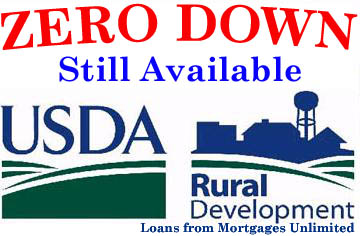Credit Repair Companies. Good or Bad Idea?
St Paul, MN: There are a lot of credit repair firms and credit counselors that have not acted in the best interest of their clients and this has certainly given the business a bad name. But that does not mean that the basic concept is not good. As a matter of fact–improving credit scores is even more important in today’s market. With the current credit crunch, expect a much harder time getting mortgage loan approval with weak credit.
Freddie Mac and Fannie Mae has implemented interest rate adjustments for anyone under 740 credit score. The mortgage insurance companies are adjusting their rates and refusing to supply mortgage insurance to anyone with a score lower than around 660. FHA, technically says they will allow a score as low as 580, you’ll have a very difficult time finding a mortgage loan approval with less than a 640 credit score.
The national average credit score is around 680. Approximately 10 million people may get a new mortgage this year, but 80 million others have credit problems and can’t get a mortgage that will help them achieve their dreams.
Self Help May Be Best
You see the advertisements in newspapers, on TV, and on the Internet. You hear them on the radio. You get fliers in the mail. You may even get calls from telemarketers offering credit repair services. They all make the same claims:
1) “Credit problems? No problem!”
2) “We can erase your bad credit – 100% guaranteed.”
3) “Create a new credit identity – legally.”
4) “We can remove bankruptcies, judgments, liens, and bad loans from your credit file forever!”
Do yourself a favor and save some money, too. Don’t believe these statements. Only time, a conscious effort, and a personal debt repayment plan will improve your credit report.
The Scam
Everyday, companies nationwide appeal to consumers with poor credit histories. They promise, for a fee, to clean up your credit report so you can get a car loan, a home mortgage, insurance, or even a job. The truth is, they usually can’t deliver. After you pay them hundreds or thousands of dollars in fees, these companies do nothing to improve your credit report; most simply vanish with your money.
The Warning Signs
If you decide to respond to a credit repair offer, look for these tell-tale signs of a scam:
1) companies that want you to pay for credit repair services before they provide any services.
2) companies that do not tell you your legal rights and what you can do for yourself for free.
3) companies that recommend that you not contact a credit reporting company directly.
4) companies that suggest that you try to invent a “new” credit identity – and then, a new credit report – by applying for an Employer Identification Number to use instead of your Social Security number.
5) companies that advise you to dispute all information in your credit report or take any action that seems illegal, like creating a new credit identity. If you follow illegal advice and commit fraud, you may be subject to prosecution.
You could be charged and prosecuted for mail or wire fraud if you use the mail or telephone to apply for credit and provide false information. It’s a federal crime to lie on a loan or credit application, to misrepresent your Social Security number, and to obtain an Employer Identification Number from the Internal Revenue Service under false pretenses.
Under the Credit Repair Organizations Act, credit repair companies cannot require you to pay until they have completed the services they have promised.
The Truth
No one can legally remove accurate and timely negative information from a credit report. The law allows you to ask for an investigation of information in your file that you dispute as inaccurate or incomplete. There is no charge for this. Everything a credit repair clinic can do for you legally, you can do for yourself at little or no cost. According to the Fair Credit Reporting Act (FCRA):
1) You’re entitled to a free report if a company takes adverse action against you, like denying your application for credit, insurance, or employment, and you ask for your report within 60 days of receiving notice of the action. The notice will give you the name, address, and phone number of the consumer reporting company. You’re also entitled to one free report a year if you’re unemployed and plan to look for a job within 60 days; if you’re on welfare; or if your report is inaccurate because of fraud, including identity theft.
2) Each of the nationwide consumer reporting companies – Equifax, Experian, and TransUnion – is required to provide you with a free copy of your credit report, at your request, once every 12 months. The three companies have set up a central website, a toll-free telephone number, and a mailing address through which you can order your free annual report.
To order, click on annualcreditreport.com, call 1-877-322-8228, or complete the Annual Credit Report Request Form and mail it to: Annual Credit Report Request Service, P.O. Box 105281, Atlanta, GA 30348-5281. You can print the form from ftc.gov/bcp/conline/edcams/credit/ .
Do not contact the three nationwide consumer reporting companies individually. They are providing free annual credit reports only through annualcreditreport.com, 1-877-322-8228, and Annual Credit Report Request Service, P.O. Box 105281, Atlanta, GA 30348-5281. You may order your reports from each of the three nationwide consumer reporting companies at the same time, or you can order your report from each of the companies one at a time. For more information, see Your Access to Free Credit Reports at ftc.gov/bcp/conline/edcams/credit/ .
Otherwise, a consumer reporting company may charge you up to $9.50 for another copy of your report within a 12-month period.
3) You can dispute mistakes or outdated items for free. Under the FCRA, both the consumer reporting company and the information provider (that is, the person, company, or organization that provides information about you to a consumer reporting company) are responsible for correcting inaccurate or incomplete information in your report. To take advantage of all your rights under this law, contact the consumer reporting company and the information provider.
Reliable Companies?
Do they exist? You bet… there are many good companies to choose from. As with just about anything else, be sure to do your homework before selecting a company. Check them out with the Better Business Bureau, make sure the give you their Client Bill of Rights for your review, and make sure they offer a free, no obligation, confidential credit and debt analysis WITH NO PRESSURE before handing over a penny of your hard earned money!
 St Paul, MN: Many homeowners are curious about the appraised value of their home in today’s market. An actual appraisal is expensive, and county tax records do NOT always reflect true market value. As you may be aware, home values are constantly fluctuating, and with the decline in average values, it is important to have an accurate idea of what your home is worth.
St Paul, MN: Many homeowners are curious about the appraised value of their home in today’s market. An actual appraisal is expensive, and county tax records do NOT always reflect true market value. As you may be aware, home values are constantly fluctuating, and with the decline in average values, it is important to have an accurate idea of what your home is worth.

 It is hard to move the economy, and especially the housing market forward when they keep making it more difficult and expensive to buy a home..
It is hard to move the economy, and especially the housing market forward when they keep making it more difficult and expensive to buy a home..